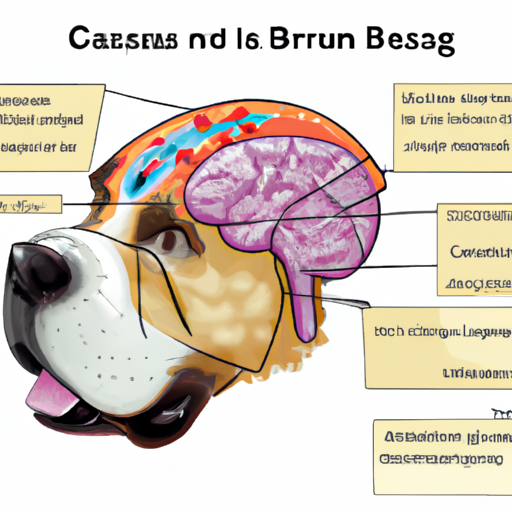Introduction
You’ve always been curious about your furry friend, haven’t you? You’re not alone. As a dog caregiver, you have a shared curiosity with millions around the globe. We all wonder what goes on in the minds of our four-legged friends. In this article, we will journey into the fascinating world of canine cognition. Let’s delve into the question: “How big are dogs’ brains?”
Size vs. Intelligence: A Common Misconception
The first thing you might imagine is that a bigger dog means a bigger brain, and a bigger brain means more intelligence. It’s a common misconception. The truth is, size doesn’t necessarily equate to intelligence. For example, the Saint Bernard, a large breed, has a brain that weighs around 2.5 ounces while the smaller Jack Russell Terrier has a brain that weighs around 1.1 ounces. Yet, both breeds show remarkable intelligence in their own ways.
Comparing Dog Brains to Human Brains
Let’s draw a comparison to human brains for a moment. The average human brain weighs about 2.86 pounds, a size significantly larger than any dog’s brain. Despite this, dogs have shown an impressive ability to learn, comprehend, and respond to human commands and emotions.
| Species | Average Brain Weight |
|---|---|
| Human | 2.86 pounds |
| Saint Bernard | 2.5 ounces |
| Jack Russell Terrier | 1.1 ounces |
Brain Structure and Functionality
It’s not just about size, it’s about structure and functionality. Dogs have a more developed olfactory lobe (the part of the brain responsible for processing smells) than humans. This explains their extraordinary sense of smell. Moreover, the part of the brain that interprets emotions, the amygdala, is also highly active in dogs, which explains their emotional intelligence and sensitivity towards their caregivers.
Canine Cognitive Abilities
- Problem-solving: Dogs can solve simple problems and puzzles, especially when there’s a treat involved.
- Memory: They can remember commands, people, and places.
- Emotion recognition: Dogs are known for their ability to pick up on human emotions.
- Social cognition: They understand their place within a pack and can form complex social relationships.
Frequently Asked Questions
Q: Does the size of a dog’s brain affect its intelligence?
A: Not necessarily. While there may be some correlation, intelligence is more about the structure and functionality of the brain.
Q: Can dogs remember people and places?
A: Yes, dogs have a good memory and can remember people, places, and commands.
Q: Are dogs emotionally intelligent?
A: Dogs are known for their emotional intelligence and can pick up on human emotions.
In conclusion, remember that the size of your dog’s brain doesn’t determine their intelligence or their ability to love and bond with you. It’s the unique structure and functionality of their brain that makes them the loyal, intelligent, and amazing companions that they are.



